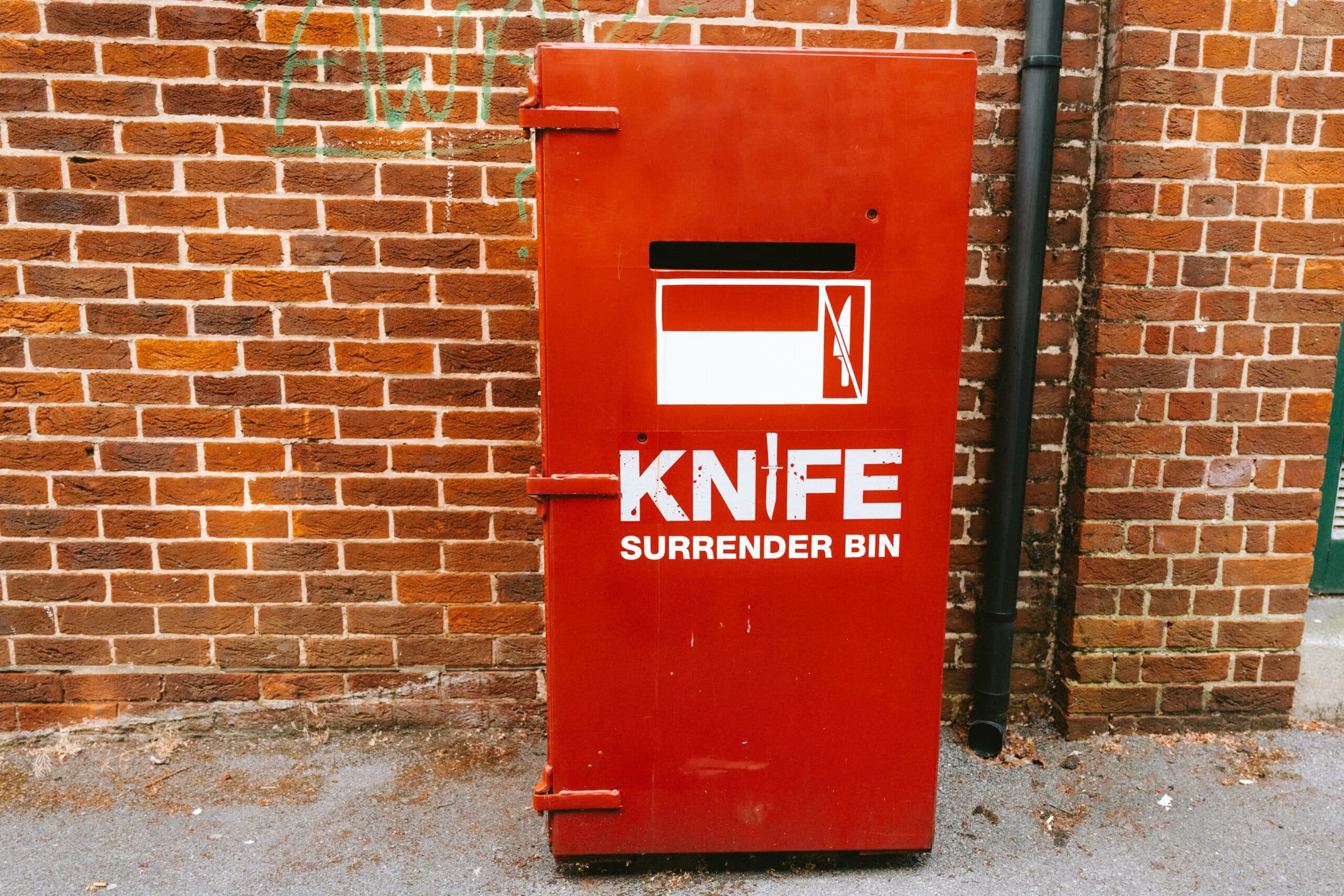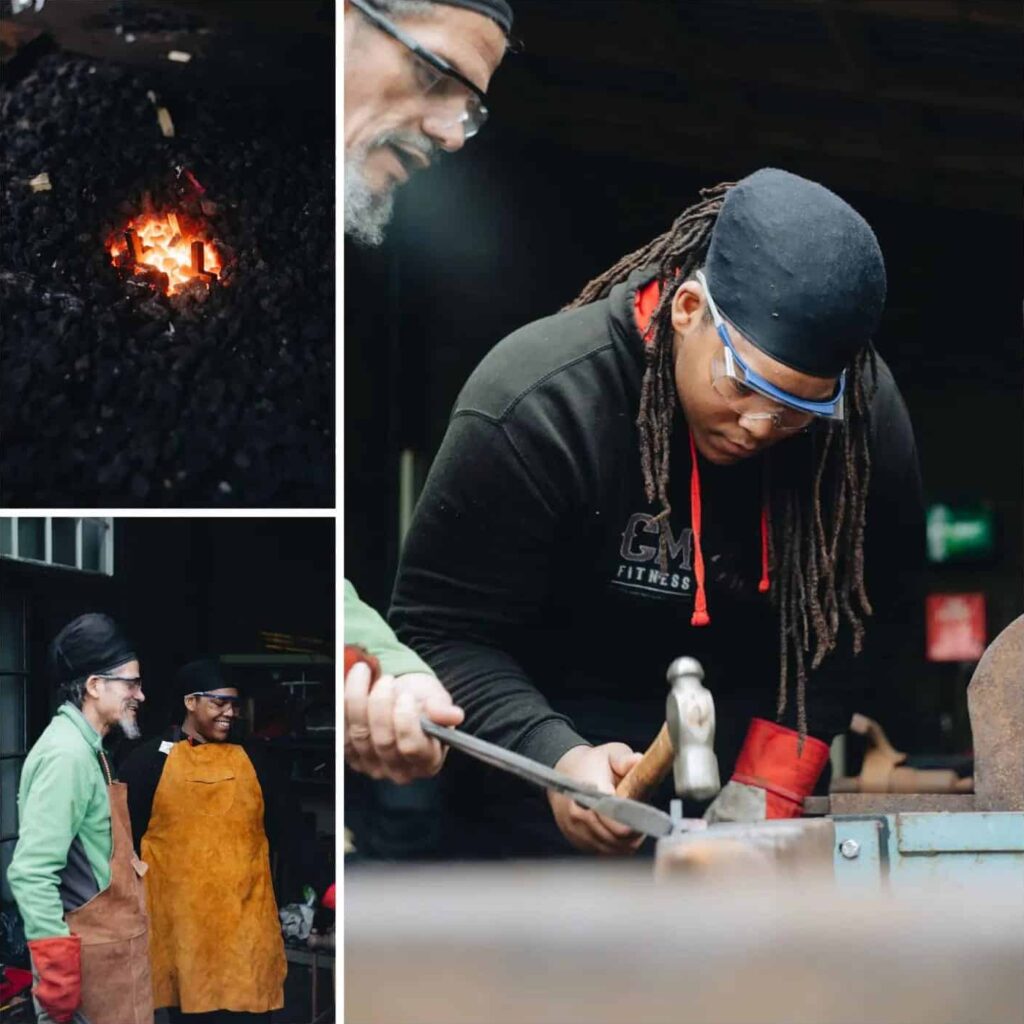Beating knives: forging peace through community action
Posted by Difference on September 15, 2025
International Day of Peace
Rooted in the prophetic call to beat swords into ploughshares, Ash Barker shares how his community in Winson Green is overcoming knife violence and forging peace in everyday ways – a vision that echoes the heart of the International Day of Peace.
Violence in our local communities always feels personal. It’s not a distant headline or abstract statistic – it’s the faces of neighbours, the familiar streets we walk, the bus stops we pass, the names we recognise. In Winson Green, where my family and I have lived and served since 2014, the pain of violence is very real.
By 2024, the West Midlands had the highest rate of knife crime per capita in England – over 7,000 offences annually1. Why is this happening so often, to so many? What kind of deep disconnection leads young people to carry weapons? What kind of hope is needed to lay them down?
These are the questions we live with as neighbours, as followers of Jesus, and as peacebuilders. And they led us to try something audacious and strange: to beat knives.
A prophetic vision
The prophets Isaiah and Micah both point toward a time when violence will be no more – when swords will be beaten into ploughshares and spears into pruning hooks. That ancient prophecy still stirs our hearts today: a world where tools of death are transformed into instruments of life.
Inspired by that prophetic hope – and with a little nudge from Shane Claiborne, who visited us in Birmingham – I began to wonder what that could look like here. In the US, Shane’s community had worked with blacksmiths to turn surrendered guns into garden tools. Could we do something similar here with knives?
Forging hope
With the help of a friendly blacksmith, we set up a mobile forge in the gardens of Birmingham Cathedral. The plan was to invite church leaders, MPs, survivors of knife crime, and members of our Red Letter Christian network to symbolically and practically transform seized knives into something redemptive. But where would we get the knives?
Through a connection with West Midlands Police, we managed to secure a carload of surrendered weapons – zombie knives, samurai swords, and more. Driving down the motorway with an estate full of blades, we couldn’t help but laugh nervously. If we’d been pulled over by the police, I’m not sure they would have believed our story.
With the help of our alpacas (yes, really – never underestimate the crowd-pulling power of an alpaca), we gathered a diverse community in the cathedral grounds. One by one, people stepped forward to beat metal, each blow heavy with meaning. Some had lost loved ones to knife violence. Their tears and their grief rang out with each strike.
Speeches were made, testimonies shared, tears shed. It was cathartic, sacred, raw. One of our alpacas briefly escaped and began leaping over cathedral graves – a moment that went viral as #LlamaDrama and signalled it was time to wind down.
Before we finished, Shane stood to speak:
“Life is more powerful than death. Love is more powerful than hatred. God invites all of us to participate in building the world we dream of.”
Something changed for us that day. Not just at the cathedral, but in our neighbourhood too.
Beating knives

From that moment, a seed was planted that began to grow in Winson Green. Local artist Alex Clarke – who helps run the creative arts centre at Newbigin Community Trust – joined with Anji and others to learn blacksmithing from our partners. Together, they launched a community project called Smashing Metal.
Smashing Metal does exactly what it sounds like: it takes the hard, cold metal of surrendered knives and transforms them into something new. Into beauty. Into hope.
Based at Newbigin House, Smashing Metal teaches young people the art of blacksmithing – a craft rooted in Birmingham’s proud industrial heritage. It’s not just about skills (though that’s important); it’s about healing. It’s about holding space for young people to channel frustration, energy, and creativity into something constructive. It’s about mindfulness and meaning, fire and form.
Knives handed over by West Midlands Police are now reimagined into public artworks – sculptures that honour the pain of the past while pointing toward a more peaceful future.
One young man recently said: “I used to think I had to carry [a knife] to be safe. Now I’m learning how to shape metal into something that brings joy.”
In January 2025, 12-year-old Leo Ross was fatally stabbed in Hall Green. His death sent shockwaves through our city. But in the months that followed, something remarkable happened: for the first time in years, the West Midlands no longer held the highest rate of knife crime per 1,000 people2. Sustained reductions began to show.
That’s thanks to tireless partnership work, to community resilience, to grassroots creativity – and maybe, just maybe, to the quiet, subversive love of beating knives.
Peace begins where we are
If peacemaking feels overwhelming, we need to start where we are. With what we have in our hands. Be curious about what’s going on beneath the surface in our community. Be present in the places of pain. Reimagine how God might use even the hardest stories to forge something redemptive.
In a world of quick fixes and deep divisions, beating knives into art may seem a small gesture. But it is precisely these small, faithful acts that help us live into God’s big, beautiful vision: A world where swords become ploughshares, where pain becomes purpose, and where love always gets the last word.
- https://cities-today.com/west-midlands-cuts-knife-crime-with-data/ ↩︎
- https://www.bbc.co.uk/news/articles/ce3lz85gel8o ↩︎

Rev Dr Ash Barker is an Australian shalom activist, communicator, and Pioneer Minister who has served for over 30 years among urban people and places facing poverty. He now lives in Winson Green, Birmingham, UK, where he founded Seedbeds to help communities grow seedbeds of shalom through local leadership programmes, in the UK, Ukraine, Myanmar, and Australia. An inspiring speaker and author of nine books, Ash’s PhD in missiology was informed by his 12 years living in Bangkok’s largest slum.



